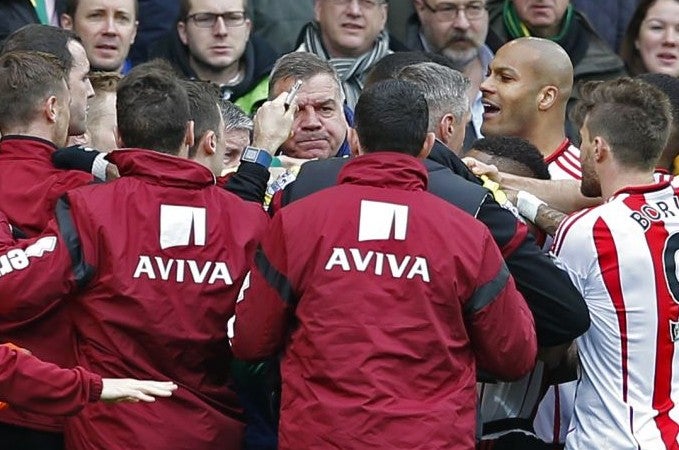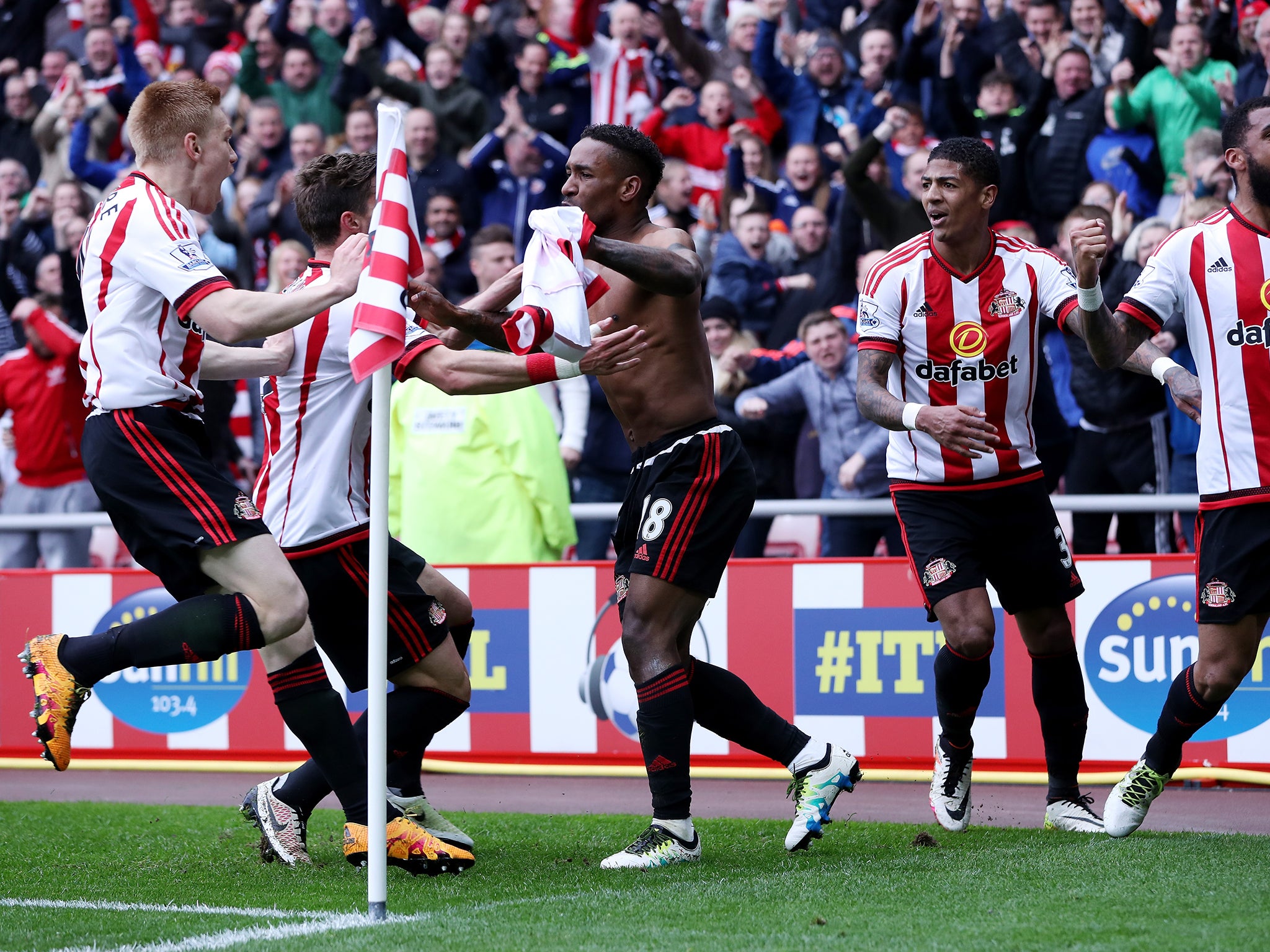Can Sam Allardyce avoid trip down memory lane with Sunderland?
Manager suffered relegation jitters 35 years ago but can ensure survival with win against Everton

It is 35 years since Sunderland went into the final two games of a league campaign needing a win to secure their future in the top division of English football. Nobody banged on about the financial worth back then. Instinctively you knew relegation was a bad thing and it meant failure and you did not need people talking of £100 million as a ginormous financial carrot.
Sunderland’s fans didn’t want their team going down and nor did their players. One of them was Sam Allardyce, who by his own admission did not set Roker Park alight in a brief spell in the North East.
Allardyce moved to Sunderland when he was 25 for £300-a-week, quadrupling the salary he was earning at Bolton. It sounds more than 35 years ago, given that the most important player at Sunderland in 2016, Jermain Defoe, currently picks up around £80,000 for the same seven days’ work.
Not that Allardyce will begrudge the centre-forward. He was one of the few jewels at the club when he took over back in November from Dick Advocaat, who believed he could not save the club with the personnel and felt promises over new players had been broken.
In 1981, Allardyce asked the club to help him buy a home in the North East because he was fed up of commuting from Bolton. The then chairman Tom Cowie refused. Allardyce handed in a transfer request and the manager at the time, Ken Knighton, who was leading Sunderland into the second tier of English football, was sacked.
Unhappy players, managerial sackings, relegation fights, it is a cycle of decline that has been sinking Sunderland long before the Premier League rolled into town.
Allardyce has more power in his armoury than when he was merely a player, but now, as in 1981, the significance of the final two games is huge. On Saturday, April 25 of that year, Sunderland played Brighton at Roker Park. Brighton were also fighting relegation, starting the day two points behind their hosts (two points being the reward for a victory back then).

Brighton won, which meant Sunderland had to go to Anfield on the final day of the season needing a result to stay up. If Everton, Wednesday night's opponents, do not lose, history will repeat itself in the enormous significance of the final day of the season.
Sunderland this time head to Watford on Sunday and if Everton go one better and win on Wednesday night, as Brighton did that day all those years ago, they will need a victory to guarantee league survival, as they did at the start of the 80s. That it is Newcastle they are fighting against (Norwich having slipped to outsiders) merely adds to the drama. If Sunderland do not beat Everton at the Stadium of Light, the North East will head back into real meltdown for four days.
It is the cold light of day to the delirium of Saturday, when a late fightback saw off Chelsea and the often absent owner Ellis Short was spotted in the home dressing room at the Stadium of Light in celebration.
For Allardyce, a man who has favoured positions for the ball to be on the pitch (POMO 1 and POMO 2), the likelihood of believing the work has been done is a non-starter.
“I cast my mind back to when I played here and the last thing I want to happen is the same thing that happened to me,” he said. “What did we have to do with two games to go? We only had to draw with Brighton to stay up. We lost in the last minute.”
That was when Gary Williams struck with a left foot volley at the Fulwell End. “We went from two games to go needing one point, to one game needing three points,” he added. “Luckily, good old Stan Cummins scored the winner at Liverpool away, but we don’t want to put ourselves in that situation tomorrow.
“Chelsea was one of those results that everyone looked at and thought how have they done that? It is the dream scenario. It is something that you strive for. We all have to try to help the players grasp it while they’ve got the chance and not let it slip. It’s one more big commitment, one more big performance. Then we can all sleep a little easier after that.
“Personally, I feel it's still big, big pressure and we have to handle that. We have two games left to secure Premier League status and knowing we can do it in one game and kill everyone else off is pressure in itself. I can't see anything but a reaction from Roberto Martinez's players after the criticism they received following their defeat at Leicester.
“I’ll know in the first five or 10 minutes whether [my players] allow the size of the game to cause them any problems. A win will get us safe, there’s no greater pressure... other than having to win the last game of the season to stay up.”
The Sunderland manager knows all about that. He was on the bench that day at Anfield, as he will be at Watford. Thirty five years on, Allardyce, who will remain at the club if they retain their Premier League status, will not want to go through the experience again.
Join our commenting forum
Join thought-provoking conversations, follow other Independent readers and see their replies
Comments